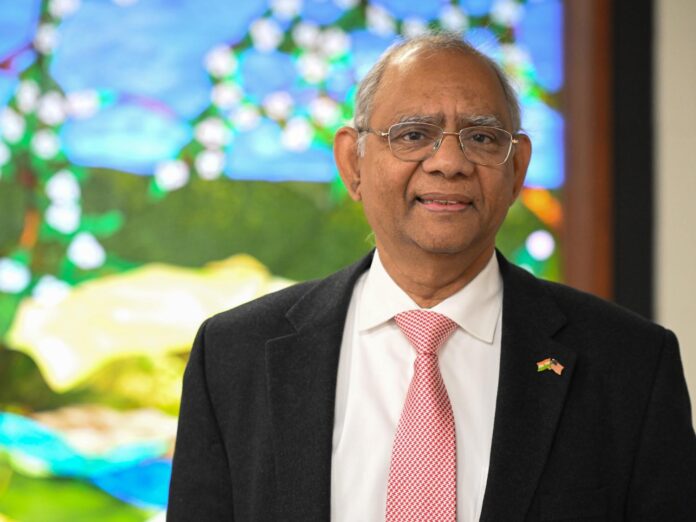-An esteemed figure at Penn State, Working to fortify academic collaborations between the two countries
Ravindra Ojha @ EW News
New Delhi, In a bid to fortify academic collaborations between India and the United States, Professor Akhlesh Lakhtakia, an esteemed figure at Penn State, sheds light on the significance of higher education partnerships. Lakhtakia, an Evan Pugh University Professor and Charles G. Binder Professor of Engineering Science and Mechanics, recently addressed stakeholders from the Association of Indian Universities, discussing the potential of a STEM (Science, Technology, Engineering, and Mathematics) education program through a strategic Indo-U.S. partnership.
The Importance of Indo-U.S. University Partnerships:
Lakhtakia emphasizes the pivotal role that university partnerships play in bringing the U.S. and India, the world’s two most populous democracies, closer together. These partnerships serve as the linchpin of a coordinated relationship based on shared democratic principles and a mutual appreciation for an educated population. With nearly 270,000 Indian students, researchers, and faculty members contributing to U.S. universities, these collaborations act as intellectual bridges fostering research, scholarship, and cultural exchange. The ensuing cross-cultural dialogue has not only enriched academic environments but has also laid the foundation for successful careers and entrepreneurial ventures.
The 4+1 Program: A Bridge to Practical Expertise:
In his role as an expert consultant and a Jefferson Science Fellow, Lakhtakia has been instrumental in devising a groundbreaking master’s program aimed at addressing the global demand for STEM talent. The proposed 4+1 program entails four years of undergraduate study in India, culminating in a bachelor’s degree, followed by a self-funded year in the U.S. to earn a specialized master’s degree. This pathway aims to equip Indian students with practical expertise, making them high-tech skilled workers upon completion of their U.S. education. The annual cohort model, involving collaboration between Indian and U.S. universities, is poised to transform the STEM educational landscape in both nations.
College of Engineering’s Role in Strengthening Partnerships:
Members of Penn State’s College of Engineering, many of whom have Indian roots, actively contribute to strengthening the Indo-U.S. partnership. Through joint research and instructional programs with Indian institutions, the College fosters ties with esteemed organizations like the Indian Institute of Science (IISc) and Indian Institutes of Technology (IIT). Noteworthy initiatives led by College of Engineering faculty, such as the India-U.S. Defense Acceleration Ecosystem, exemplify the commitment to expanding technology and defense cooperation between the two nations.
Penn State’s Broader Contribution:
Beyond the College of Engineering, Penn State’s commitment to Indo-U.S. partnerships is exemplified by historical connections and influential alumni. Figures like Rustom Roy, a Penn State alum, have played a pivotal role in attracting generations of Indian students and faculty to the university. Presently, President Neeli Bendapudi, herself of Indian-American heritage, co-chairs the Association of American Universities task force focused on expanding research and academic partnerships between U.S. and Indian institutions. This commitment is further reinforced by the appointment of Roger Brindley, vice provost for Penn State Global, as a member of the White House-charged task force.
As Penn State continues to weave close ties between the U.S. and India, these educational collaborations stand as beacons of mutual understanding, knowledge exchange, and shared prosperity in the ever-evolving global landscape. The envisioned 4+1 program serves as a testament to the university’s commitment to nurturing the next generation of STEM leaders with a global perspective.


